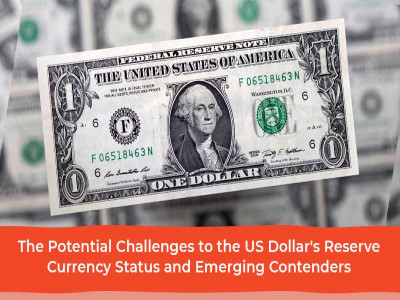
A Qualitative Study on the Persuading Factors that Contribute to Drinking Behaviors among Young Adults in India.
Alcohol consumption has become more prevalent in recent years. Adolescents and young adults are more vulnerable to engaging in drinking behaviors, which can be the result of various psycho-social factors.
The results of the interviews/ study revealed several persuading factors that led people to drink alcohol. Peer pressure, social interactions, family get-togethers, parental support, social media, and alcohol functioning as a sedative in stressful times alcohol acts as a stress buster are some of the more typical ones. Additionally, some participants claimed that drinking alcohol makes them feel content, calms them down, and aids in emotional control. Among these factors, the most common are social gatherings, feelings of relaxation after alcohol consumption, and family get-togethers.
The main themes that emerged from the study are
Theme 1-
Peer Pressure- This factor was reported by Participants 1, 4, and 7. This means people consume alcohol when they are with their friends, or their friends influence them to consume alcohol. Some pieces of evidence are- “It happens so much around me, my friends, that I've become very normalized to it.” “You know my friends are always around me drinking alcohol and they convince me to do the same.” “Maybe pressure. My peers. Even if I say I don't want to have a drink they'll be like just one ring, it's not gonna make a big difference.”
Theme 2- Social Interactions
Theme 2 talks about the consumption of alcohol in social interactions. Social interactions mean any official meetings with senior colleagues and also include office parties. Some pieces of evidence are, “that any kind of social interactions when I am in any kind of business meetings or something, I go get a drink while the conversation is on.” “Also I don’t drink a lot, I drink at weekend office parties with my colleagues.”
Theme 3- Family get-togethers
Participants 3 and 7 reported that they are intrigued to consume alcohol when they are at any Family Get-Togethers because they have the support of their parents and other members. Some pieces of evidence are- “Is in occasions like family, get-togethers of friends like that any kind of social interactions.”
Theme 4- Parental Support
Participants 1,2,5,6,7 and 8 reported parental acceptance to be a major factor. They talked about how their parents accepted their behavior of alcohol consumption. Some pieces of evidence are- “Just a half of one peg, my father used to Give me a small peg for just the company.” “So technically I mean wine is something that even my parents, we all have it together.” “They do know about my alcohol consumption but they did not ask me to control or cut down on my alcohol consumption.” “I always sit with my father and drink that’s a type of celebration.”
Theme 5- Social Media Influence-
Participants 3,4,5 and 8 reported that they get influenced and motivated by social media posters or role models who promote different brands of alcoholic drinks. Some pieces of evidence are-“Also, I get influenced by the ads that appear on social media for different brands of alcohol.” “ Another thing is Instagram, which makes aesthetic stories when I think alcohol and a lot of people react to that. So I love that potion validation.”
Theme 6- Alcohol as a sedative
Participants 2,5,6,7 and 8 reported that they felt relaxed and alcohol works as a sedative for them during stressful times which motivates them to consume alcohol. Some pieces of evidence are- “But later on, I did it because I liked it. I like this sort of immediate relief. It gives you.” “When I drink alcohol, the environment feels very calm and it is such a nice feeling.” “We get another level of relaxation. Sometimes happiness. And we will forget that current sadness like that.”
So, the above results clarify that the persuading factors differ for every person and can affect them in different ways. Some factors came out to be them for some of the participants and there is more than one factor, that makes them stick to alcohol consumption.
These factors are subjective to everyone and vary from one person to another. The most common is peer pressure- when young adults consume alcohol to maintain a social or group identity. Alcohol not only has physical effects but it also affects a person's overall well-being. More awareness and psychoeducation about alcohol consumption and its side effects would help the upcoming youth to make their health choices securely.
Being a future psycho oncologist, I would want to spread awareness that alcohol/tobacco does not only contribute to cancer causation but also has several other side effects such as heart diseases, thickening of blood and blood vessels, lung problems, and effects on the brain due to which our thinking capacity might be hampered. Apart from these alcohol also causes stress, sleep disturbances, and anxiety problems.
Alcohol abuse/ Use can strain familial relationships, leading to conflicts, emotional distress, and breakdowns in communication. Children of individuals with alcohol use disorder may experience neglect, abuse, or adverse childhood experiences, which can have long-term consequences on their emotional and psychological well-being.
Overall, while moderate alcohol consumption may have some potential health benefits, it's essential to be aware of the potential risks associated with excessive or chronic alcohol consumption and to make informed choices about alcohol use based on individual circumstances and health considerations. Seeking support from healthcare professionals or support groups can be helpful for individuals struggling with alcohol-related issues.
A research conducted by Somdutta Ghosh- student of MSc Clinical Psycho-Oncology,
Christ Deemed to be University, Bengaluru
Disclaimer: The opinions expressed in this article are those of the author's. They do not purport to reflect the opinions or views of The Critical Script or its editor.

Newsletter!!!
Subscribe to our weekly Newsletter and stay tuned.

















Related Comments